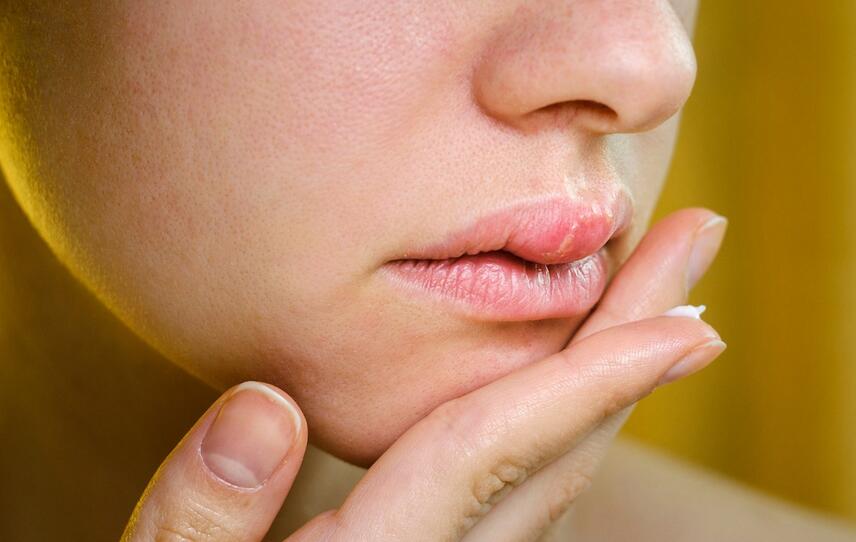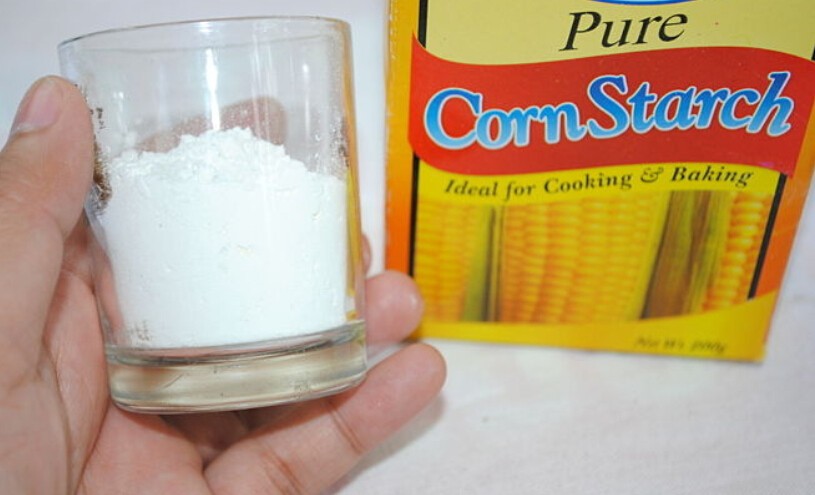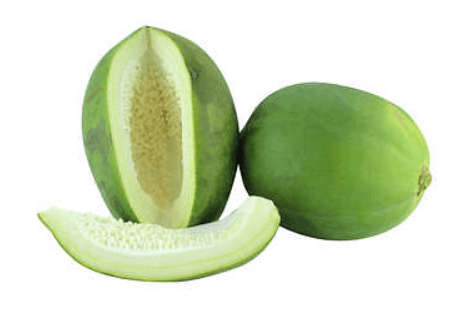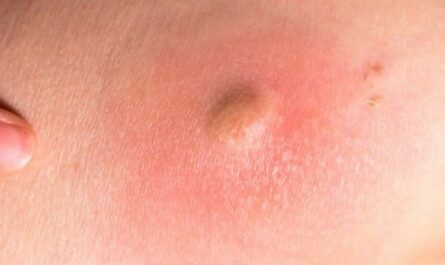Waking up with swollen lips can be an alarming and uncomfortable experience. Whether caused by an allergic reaction, injury, or another underlying condition, puffy and inflamed lips can make eating, speaking, and smiling difficult. Fortunately, there are several natural remedies you can try to alleviate swelling and soothe your lips. In this article, we’ll explore 14 effective home remedies to help you get rid of swollen lips quickly and safely.
Common Causes of Swollen Lips
Here are some common causes:
- Allergic reactions: Swollen lips can occur as a result of an allergic reaction to certain foods, medications, or substances like pollen or insect bites. This reaction triggers the release of histamines, causing inflammation and swelling.
- Angioedema: This condition involves the rapid swelling of the deeper layers of the skin, including the lips. It can be caused by allergies, medications, infections, or genetic factors.
- Injuries or trauma: Accidental injuries, such as bites, cuts, or burns to the lips, can cause swelling and inflammation.
- Infections: Viral or bacterial infections, such as cold sores, can lead to swollen and blistered lips.
- Lip sunburn: Excessive exposure to the sun without proper protection can cause sunburn on the lips. This will result in swelling, redness, and pain.
- Medications: Some medications, such as NSAIDs, inhibitors, or certain antibiotics, can cause allergic reactions or side effects that lead to swollen lips.
- Hormonal changes: Fluctuations in hormone levels, such as during menstruation or pregnancy, can cause fluid retention and lead to swollen lips.
- Lip biting or sucking: Habitual lip biting or excessive sucking on the lips can cause irritation, inflammation, and subsequent swelling.
- Dental issues: Infections or dental procedures that affect the gums or surrounding tissues can result in swollen lips.
- Autoimmune disorders: Conditions like lupus or Crohn’s disease can cause chronic inflammation and swelling, including in the lips.
- Nutritional deficiencies: Lack of certain vitamins or minerals, such as vitamin B12 or iron. This can lead to lip inflammation and swelling.
- Alcohol or spicy food consumption: Some individuals may experience temporary lip swelling after consuming alcohol or spicy foods.
- Environmental factors: Exposure to extreme temperatures, dry air, or harsh chemicals can irritate the lips and cause swelling.

14 Natural Remedies to Get Rid of Swollen Lips
1. Apply a Cold Compress
One of the simplest and most effective ways to reduce swelling in your lips is to apply a cold compress. The cold temperature helps constrict blood vessels, reduce inflammation, and numb pain.
You can wrap a bag of ice or frozen vegetables in a thin towel and apply it to your lips for 10-15 minutes at a time. You can also use a cold spoon or a chilled face roller for a more targeted application.
If you don’t have access to ice or frozen items, you can also use a cold, damp cloth or compress. Soak a clean cloth in cold water, wring out the excess, and apply it to your lips for 10-15 minutes at a time. Repeat this process several times a day Be sure to take breaks between applications to avoid damaging your delicate lip skin.
2. Try Aloe Vera Gel
Aloe vera is a natural anti-inflammatory and soothing agent that can help reduce swelling and promote healing in your lips. The gel from the aloe vera plant contains compounds like anthraquinones and polysaccharides. This has anti-inflammatory and wound-healing properties.
To use aloe vera for swollen lips, simply apply a small amount of pure aloe vera gel directly to your lips and massage gently. Repeat this process several times a day.
If you don’t have access to fresh aloe vera, you can also use a store-bought aloe vera gel or lip balm. Look for products that contain a high percentage of pure aloe vera. Avoid those with added fragrances, colors, or other irritants.
3. Moisturize with Coconut Oil
Coconut oil is a natural moisturizer and anti-inflammatory agent that can help soothe and protect swollen lips. The medium-chain fatty acids in coconut oil have antimicrobial and anti-inflammatory properties.
To use coconut oil for swollen lips, simply apply a small amount of pure, organic coconut oil directly to your lips and massage gently. Repeat this process several times a day, or as needed for relief.
In addition to its anti-inflammatory properties, coconut oil can also help protect your lips from further irritation and dryness. The oil forms a protective barrier on your lips, locking in moisture and preventing environmental stressors from causing further damage. If you have particularly dry or chapped lips, you can also try mixing a small amount of honey into your coconut oil for benefits.

4. Apply a Turmeric Paste
Turmeric is a spice that has been used for centuries in traditional medicine for its anti-inflammatory and healing properties. The active compound in turmeric, curcumin, has potent anti-inflammatory effects.
To use turmeric for swollen lips, mix a small amount of turmeric powder with enough water or coconut oil to form a paste. Apply the paste directly to your lips and leave on for 10-15 minutes before rinsing off with warm water. Repeat this process 2-3 times a day.
If you have particularly sensitive skin, you may need to do a patch test before applying turmeric to your lips. Some people may experience irritation or allergic reactions. You can also try mixing turmeric with other soothing ingredients, such as honey or aloe vera, to help reduce the risk of irritation.
5. Soothe with Chamomile Tea
Chamomile is an herb that has been used for centuries for its calming and soothing properties. The active compounds in chamomile, such as apigenin and bisabolol, have anti-inflammatory and wound-healing effects.
To use chamomile for swollen lips, brew a strong cup of chamomile tea and allow it to cool to room temperature. Soak a clean cloth in the tea and apply it to your lips for 10-15 minutes at a time. You can also try drinking chamomile tea regularly to help reduce inflammation throughout your body.
If you don’t have access to chamomile tea, you can also try using chamomile essential oil. Mix a few drops of chamomile oil with a carrier oil, such as coconut or jojoba oil, and apply it directly to your lips. Be sure to use a high-quality, pure essential oil and always dilute it with a carrier oil to avoid irritation.
6. Apply a Honey Mask
Honey is a natural antibacterial and anti-inflammatory agent that can help soothe and heal swollen lips. The compounds in honey have antimicrobial and wound-healing properties.
To use honey for swollen lips, apply a small amount of pure, raw honey directly to your lips and leave it on for 10-15 minutes before rinsing off.
In addition to its antimicrobial and anti-inflammatory properties, honey is also a natural humectant. This can be particularly beneficial for swollen lips that are also dry or chapped.

7. Try a Baking Soda Paste
Baking soda is a natural anti-inflammatory and soothing agent that can help reduce swelling and discomfort in your lips. The alkaline nature of baking soda helps neutralize acids in the skin and promote healing.
To use baking soda for swollen lips, mix a small amount of baking soda with enough water to form a paste. Apply the paste directly to your lips and leave on for 10-15 minutes before rinsing off with warm water. Repeat this process 2-3 times a day.
You can also try mixing baking soda with other soothing ingredients, such as honey or aloe vera, to help reduce the risk of irritation. Keep in mind that baking soda can be drying to the skin, so be sure to follow up with a moisturizing lip balm or oil after using this remedy.
8. Apply a Green Tea Compress
Green tea is a natural anti-inflammatory and antioxidant agent that can help reduce swelling. The active compounds in green tea, such as epigallocatechin gallate (EGCG), have potent anti-inflammatory.
To use green tea for swollen lips, you can brew a strong cup of green tea and allow it to cool to room temperature. Soak a clean cloth in the tea and apply it to your lips for 10-15 minutes at a time. You can also try drinking green tea regularly to help reduce inflammation throughout your body.
If you don’t have access to green tea, you can also try using green tea extract or matcha powder. Mix a small amount of the extract or powder with enough water or oil to form a paste, and apply it directly to your lips.
9. Massage with Peppermint Oil
Peppermint oil is a natural anti-inflammatory and analgesic agent that can help reduce swelling and numb pain in your lips. The active compound in peppermint oil, menthol, has cooling and soothing effects on the skin.
To use peppermint oil for swollen lips, mix a few drops of pure peppermint essential oil with coconut or jojoba oil. Apply the mixture directly to your lips and massage gently for 1-2 minutes.
Remember that peppermint oil can be very strong and may cause a burning or tingling sensation on your lips. Be sure to use it sparingly and always dilute it with a carrier oil.

10. Apply a Cucumber Slice
Cucumber is a natural anti-inflammatory and cooling agent that can help reduce swelling and soothe discomfort in your lips. The high water content in cucumber helps hydrate and cool the skin. The antioxidants and vitamins can also help promote healing.
To use cucumber for swollen lips, simply slice a fresh cucumber and place a slice directly on your lips. Leave the slice on for 10-15 minutes at a time. You can also try mashing up a cucumber and applying the pulp to your lips for added hydration and soothing benefits.
If you don’t have access to fresh cucumber, you can also try using cucumber juice or extract. Mix a small amount of the juice or extract with enough water or oil to form a paste, and apply it directly to your lips.
11. Try a Licorice Root Compress
Licorice root is a natural anti-inflammatory and soothing agent that can help reduce swelling and promote healing in your lips. The active compounds in licorice root have potent anti-inflammatory and antioxidant effects.
To use licorice root for swollen lips, brew a strong tea using dried licorice root and allow it to cool to room temperature. Soak a clean cloth in the tea and apply it to your lips for 10-15 minutes at a time. You can also try drinking licorice root tea regularly to help reduce inflammation.
If you don’t have access to dried licorice root, you can also try using licorice root extract or powder. Mix a small amount of the extract or powder with enough water or oil to form a paste, and apply it directly to your lips.
12. Apply a Witch Hazel Compress
Witch hazel is a natural astringent and anti-inflammatory agent. This can help reduce swelling and soothe discomfort in your lips. The tannins in witch hazel help tighten and tone the skin. The antioxidants help reduce inflammation and promote healing.
To use witch hazel for swollen lips, soak a clean cloth in pure witch hazel and apply it to your lips for 10-15 minutes at a time. You can also try applying witch hazel directly to your lips using a cotton swab or pad.
If you have particularly sensitive skin, you may need to dilute the witch hazel with water or aloe vera juice before applying it to your lips. You can also try mixing witch hazel with honey or vitamin E oil to help reduce the risk of irritation.
13 . Apply an Oatmeal Mask
Oatmeal is a natural anti-inflammatory and soothing agent that can help reduce swelling and discomfort in your lips. The compounds in oatmeal have potent anti-inflammatory and skin-protective effects.
You can mix a small amount of plain, unflavored oatmeal with enough water or milk to form a paste. Apply the paste directly to your lips and leave on for 10-15 minutes before rinsing off with warm water. Repeat this process several times a day.
If you have particularly sensitive skin, you may want to use colloidal oatmeal. It is a finely ground form of oatmeal that is less likely to irritate.

14. Try a Papaya Mask
Papaya is a natural enzyme and anti-inflammatory agent that can help reduce swelling and promote healing in your lips. The active enzyme in papaya, papain, has been shown to have skin-soothing and exfoliating properties.
To use papaya for swollen lips, mash up a small amount of ripe papaya and apply it directly to your lips. Leave the mask on for 10-15 minutes before rinsing off with warm water.
If you don’t have access to fresh papaya, you can also try using papaya extract or powder. Mix a small amount of the extract or powder with enough water or oil to form a paste, and apply it directly to your lips.
Conclusion
By incorporating these 16 strategies into your daily routine, you can help alleviate discomfort. Remember to be gentle with your lips. Always do a patch test before trying a new remedy to avoid any adverse reactions.
If your swollen lips persist or worsen despite trying these natural remedies, it’s important to consult with a healthcare professional. In some cases, swollen lips may be a sign of a more serious condition that requires medical attention.






